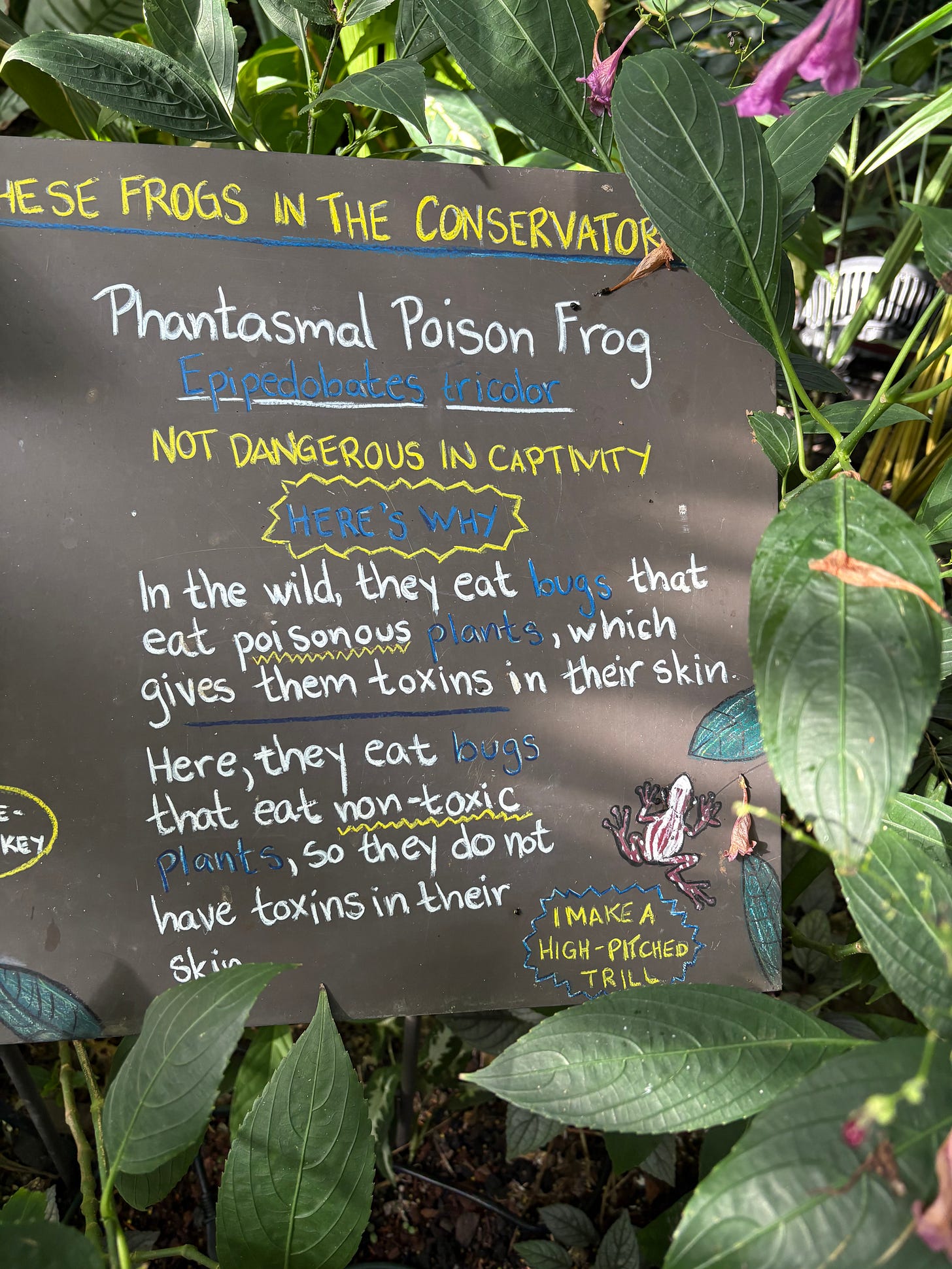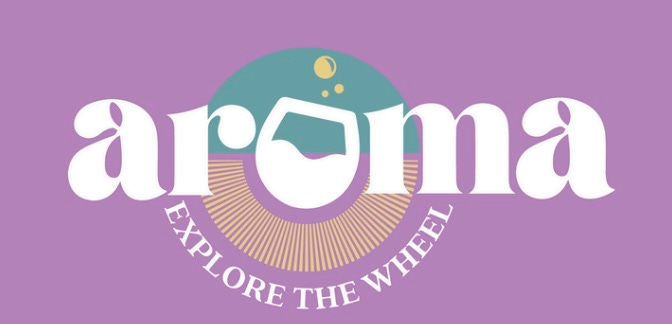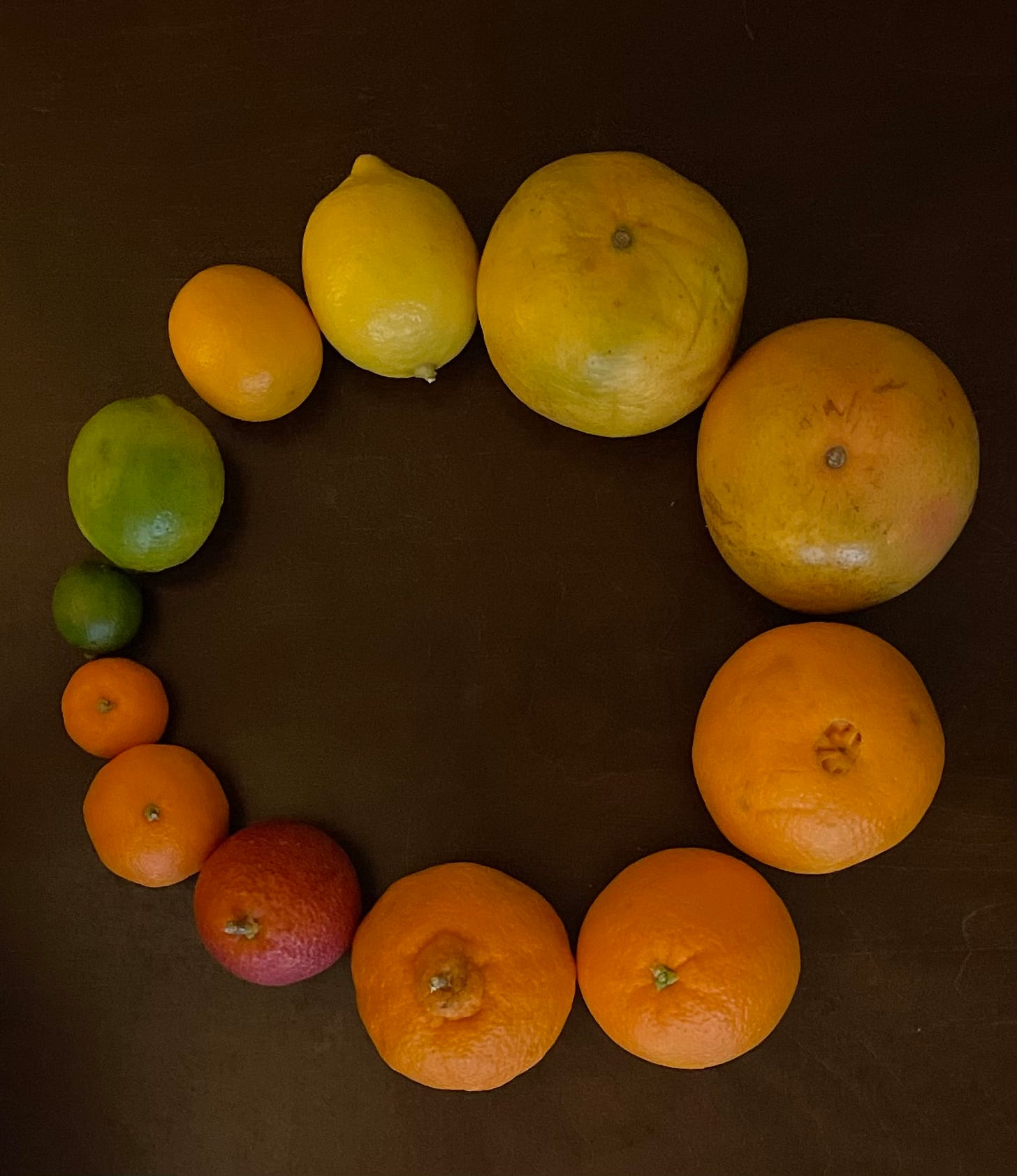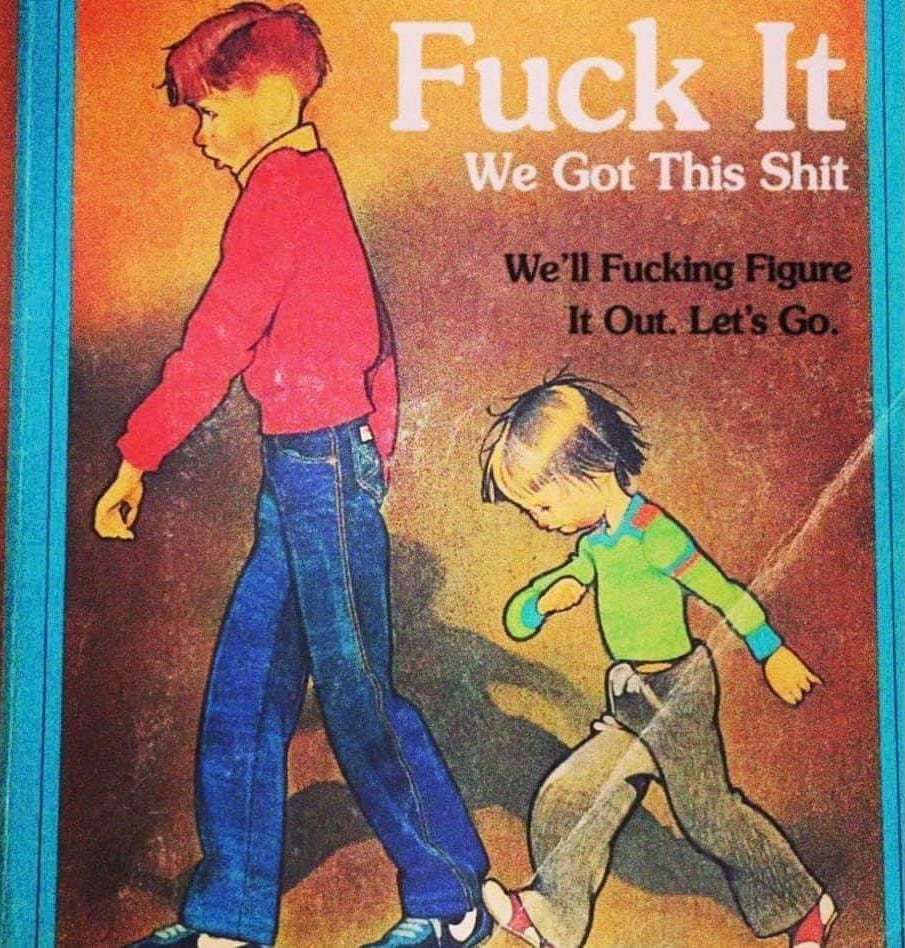I’m assuming that every person reading this newsletter has or had some type of job or performs some type of labor in exchange for money and benefits. Which means that you probably work or have worked in an environment where you and your coworkers play some archetypal role. There is a certain archetype that I’m pretty confident all of us have had to deal with in the workplace. Maybe you’ve even played this role at certain times or in certain positions.
The toxic one.
At a previous brewery, there was an employee who I’m still not exactly sure what their exact job title was - maybe bar manager? - but what I do know is that they spent an inordinate amount of time during their workday in the office I shared with two other coworkers. Mostly complaining. Mostly complaining about work. And hey, I get it. A reality for most of us is that we have to exchange our labor for money to survive and live a life outside of work. I love my job and some days I still feel like I hate it.
But you know this type of person. Always complaining. Rarely, if ever, taking any concrete steps to improve the situation or at least their attitude toward it. This includes declining to take opportunities to make improvements or attain a desired goal. I saw this particular coworker clash with subordinates and with supervisors. I saw their managers giving them opportunities to do things like invest in good quality draught cleaning equipment and them never following through with it.
It was easier to complain than to put in an effort. Because they knew what complaining got them, even if it was nothing. But getting what they asked for was an unknown and therefore an uncomfortable thought.
I have been the toxic one at a job before—the one who comes in with a face that conveys displeasure and irritation. The one people tiptoe around because they don’t want to upset me or be on the receiving end of that displeasure and irritation. WHICH ONLY EVER IRRITATES PEOPLE MORE. I’ve been the one who complains about any and everything. The one for whom no minor improvement is enough.
A few months ago, I was at the Atlanta Botanical Gardens with friends. While we were in the Tropical Rotunda, we could hear the sounds of the tropical frogs that lived there. Against their trilling soundtrack, we read more about the frogs, particularly the phantasmal poison frog.
The toxicity of the frogs is contextual and environmental. The poison frog is not, by itself, poisonous. Rather, the frog eats bugs and those bugs in turn eat poisonous plants. The poisons from the plants that the bugs eat eventually make their way to the frog’s skin, which then makes the frog toxic. At the botanical garden, the frogs ate a diet of bugs that eat non-toxic plants. Hence, the frogs in captivity were still presumably well-fed but were not toxic.
My friends and I talked more than once about that frog and its toxicity and how that applies to our lives. Obviously I have continued to think about it for the better part of the year. Like I mentioned above, I was absolutely the toxic frog in some of my workplaces. At some jobs, some days I was the toxic frog and some days I wasn’t. My toxicity, like the frog’s, often depended on the environment around me.
When I reflect on my toxic frog workdays, most of what I recall feeling was frustration that I wasn’t being seen, or validated, or that my work mattered. Sometimes it was feeling undermined and like I was being placated, that everyone else was following a different gameplan that I wasn’t allowed to know about. Digging even deeper, most of those feelings boiled down to me spending 40+ hours a week feeling unseen, alone, and unappreciated.
Being toxic can give you an edge over threats. In the physical world, poison frogs developed a gene mutation that made them toxic to predators while not being toxic to themselves. In a metaphorical world, being toxic typically reflects a need to protect oneself from perceived attacks.
It wasn’t until I really reflected on my past jobs that I realized I was repeating a pattern. Those of us with a predisposition to overwork generally grow up in chaotic homes. When it comes to our jobs, we repeatedly and unconsciously seek out chaotic work environments. Why? To maintain a high level of stress to keep their brains in an activated state. It’s the only mindset we’ve known. I continued to mostly choose jobs where I ignored red flags during the interview and hiring processes. Additionally, those jobs typically paid me an artificially low salary, which added yet another layer of stress to my days. So in a way, I was setting myself up for toxicity even though I didn’t realize it.
Not everyone has the ability and privilege of being able to bounce from a toxic job. Just being aware that I was repeating a pattern and then getting to the core of why that pattern was creating toxicity in me made it easier to at least recognize what was going on. Even if I couldn’t extricate myself from the situation right away, I better understood what was happening to me in those environments. Once I became more cognizant of this pattern, it was easier to evaluate opportunities for jobs and projects that came my way. If you’ve never been in a situation like this before, then it probably seems really obvious that you shouldn’t ignore red flags anywhere in life. It took some of us (🙋🏻♀️) close to twenty-five years of jobs that sometimes made us toxic to come to that conclusion.
Aroma: Explore the Wheel
If you follow me on social media, then you may have already read a little bit about my next project - Aroma: Explore the Wheel. It begins this month, whether I’m ready for it or not. A few months ago, I wrote about the importance of starting ugly - just doing the thing, worts and all, because you can’t just think about it forever. So here is a real-world example for you about starting ugly.
Like many of my projects, this started as an idea a few months back. I’ve spoken a lot about the importance of descriptive language and how to be both evocative and specific. I also recognize that not everyone has the time and resources to do things like spend $60 on different citrus fruits at the grocery store. Then throwing away roughly $58 of that produce because 1. I underestimated the time it would take to process that many citrus fruits into peel, pith, and pulp, and 2. Once I realized how long it would take, I ignored the rest of the fruit until it rotted.
What could I do that helps bridge the gap between accessibility and improvement? I know how advantageous smell training can be for a myriad of reasons, so I set out to find a way to deliver smell training directly to people.
Here’s how Aroma: Explore the Wheel will work. Each month, we’ll blind-smell vials that contain a selection of aromas based on various aroma wheels and flavor maps. We’re starting with beer, but it’s easy to expand beyond beer. There will be a live webinar for participants wherein we’ll discuss that month’s aromas, how they may arise in beer, and other fun beer sensory topics, like how to read a spider chart and what role your memory plays in sensory. You’ll be able to track your progress and I’m hoping to be able to offer more bespoke reporting, like letting you know your strengths and weaknesses.
Aroma: Explore the Wheel begins this month! We’re starting in the “Fruity” section of aroma wheels and working our way through that section from berry to stonefruit. I’ll be honest and say that I’m not sure when registration will open up, but it should be in the next couple of weeks.
Will this idea work? We’ll find out! You can visit the Aroma: Explore the Wheel page on my website for updates.









Dang it, right in the feels with this one. My first beer industry job was toxic and I became toxic because I was (A) too young to recognize how toxic it was and (B) didn't realize what working in a real job looked like, so I let too much of it get to me. I'm sorry that I hurt my reputation by being a crappy person to be around, but am glad that I was able to circle back around and (hopefully) people have realized that 42 year old me is not 24 year old me.
I'm currently stuck in a toxic job, but because I care about the mission of the organization for which I work, and because it's allowing me a certain amount of freedom to do other things I'm interested in, I'm currently sticking to it. Because sometimes you can rinse the toxicity off and just find the good stuff. At least for a little while.
I've been in that toxic place. It rots you from the inside. Not a fun way to feel. So glad I was able to recognize it and bring myself back from the brink. Thanks for the good read as always, Jen. Love you, friend. Happy New Year.